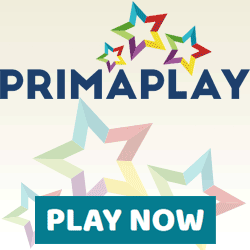Florida's Gambling Helpline Overwhelmed Amid Surge in Sports Betting Calls
February 6, 2025 Marija D

The widespread acceptance of sports betting has led to an increase in problem gambling cases, significantly impacting Florida’s only gambling helpline. Despite an unprecedented surge in calls, the Florida Council on Compulsive Gambling (FCCG) is operating with a limited staff and no state funding.
The FCCG, which has assisted problem gamblers for 37 years, now receives more calls than ever before. However, it has only seven employees, including Executive Director Jennifer Kruse, to manage the influx of requests for help.
“It definitely should be the other way around,” Kruse told News 6. “Unfortunately, circumstances haven’t allowed for that.”
The number of calls skyrocketed following the launch of the Hard Rock Bet app, Florida’s first legal online sportsbook. In 2024, its first full calendar year of operation, the helpline received approximately 63,000 s—nearly double the volume from 2023.
State Funding Cut Despite Growing Need
The FCCG operates 24/7, handling more than 170 calls, texts, and live chats daily. However, Kruse its that the team is severely understaffed.
“We definitely do not (have the staff for this),” she said. “We operate 24 hours a day, 7 days a week, 365 days a year. (We need) probably 30 at this point.”
The council’s ability to expand has been hindered by funding cuts. Since July 2024, it has not received state funding, despite the Hard Rock Bet app generating millions in tax revenue. For two decades, the Florida Gaming Control Commission allocated funds to the FCCG, using $2 million annually from slot machine revenues in Miami-Dade and Broward counties. However, this funding ceased due to istrative issues.
Kruse explained that the funding stopped because the council was unable to meet record-keeping demands required by the commission. Monthly reports required extensive documentation, which she said would take more than 100 hours to compile.
“While we’ve had this huge increase in s to the helpline and expansion of gambling in the gambling problem in the state of Florida.”
The Florida Gaming Control Commission responded in a statement to News 6, saying: “At the end of the latest term of its contract with the Commission, the Council declined the Commission’s offer to renew the contract.”
Kruse expressed gratitude for the Seminole Tribe’s continued financial , stating, “We’re doing the best we can and we’re really thankful that we have the of the Seminole Tribe, and that’s we’re still able to be here and to answer the phones.”
The commission has been searching for a new organization to take over problem gambling services, but the process remains ongoing.
Expanding Sports Betting and Rising Addiction Risks
Sports betting has long existed in underground markets, but it gained widespread legitimacy after the U.S. Supreme Court overturned the Professional and Amateur Sports Protection Act in 2018. This decision allowed states to regulate sports gambling independently, and nearly 40 states have since legalized the practice.
In Florida, legalization came through a 2021 compact between Governor Ron DeSantis and the Seminole Tribe. After legal challenges, the Supreme Court allowed online betting to proceed in late 2023, leading to the launch of Hard Rock Bet.
“Basically, (the compact) gave (the Seminole tribe) a monopoly on legal gambling in Florida,” said Dr. Keith Buckley, a professor of international business at Rollins College. “In return, the state of Florida was pretty much guaranteed up to 2030 about $4.4 billion. I think that’s a really low estimate, so I think the tax returns are going to be quite extensive.”
Despite the growing industry, data on Florida’s sports betting participation remains limited, as the Seminole Tribe does not disclose detailed figures. However, the nationwide rise in online betting suggests significant local engagement. In 2024 alone, Americans wagered over $142 billion on sports, compared to just $5 billion in 2017, before legalization expanded.
“There’s just been an entire proliferation of gambling,” Kruse said. “It’s the norm. It’s acceptable in society whereas 20 years ago, it wasn’t.”
Aggressive marketing campaigns have further normalized betting. ments featuring celebrities, such as Post Malone for Hard Rock Bet, frequently appear during sports broadcasts. Even major sports networks like ESPN have entered the market, actively promoting their own sportsbooks.
Buckley, who has also coached soccer at Rollins College since 1991, highlighted the risks of such widespread advertising.
“It’s the alcoholic being in a bar, it’s the same analogy,” he said. “Someone who may be in recovery from a gambling addiction who’s been able to avoid triggers or temptations or urges to gamble can now turn on the television and see ads on every single station.”
Young Adults and College Students Most at Risk
The helpline’s data shows that young men, particularly those in their 20s, make up nearly half of all callers seeking assistance. A 2023 survey revealed that one in five college students had used financial aid to fund gambling. Another study by the NCAA indicated that 60% of male college students engage in sports betting.
“It’s definitely normalized,” Buckley noted. “What we’re seeing is for young men, it’s a social activity. They’re gambling between themselves; they’re using the app and the variants of different games you can play.”
Kruse pointed out a troubling trend: “If you go back 10 years ago, it would be a very, very small percentage of callers who were in the 21 and under range,” she said. “Now, I would tell you almost half are men 18 to 25. And they report that they started gambling most often before the age of 18.”
The ease of online betting contributes to the issue.
“There’s a basic formula for risk,” Kruse explained. “It’s accessibility plus acceptability equals increased vulnerability to problem gambling. The more acceptable and accessible an activity is, the more likely there is a chance for people to develop a problem.”
Despite the rising numbers, experts believe many problem gamblers never seek help.
“I think there’s a shame and a stigma associated with it,” Kruse said. “I think people who have a problem are afraid to it it maybe because of the finances that are tied to it. They’re afraid it might impact their career or their ability to get a job.”
Addressing the Problem Through Prevention
Unlike substance abuse, gambling addiction often remains invisible.
“It’s very much like a substance-use addiction, similar to alcohol and drugs, but it’s also very different,” Kruse said. “There’s no saturation point. Somebody can only sit at a bar and ingest so much alcohol or ingest so much of a chemical or a substance before they out or have a physical reaction to it. With gambling, with the click of a mouse, you can lose millions; lose your entire life savings.”
Buckley warned of the long-term consequences: “It’s not a crisis yet, but it’s going to be,” he said. “There’s no visual appearance that someone is a compulsive and addicted gambler.”
Beyond financial losses, research suggests problem gambling increases the risk of suicide and domestic violence.
The FCCG continues working on prevention efforts, starting with educating young children.
“It’s all about prevention,” Kruse said. “Having the conversations and explaining that, yes, gambling is normalized, but there is a risk that’s associated with it.”
Source:
”Florida’s problem gambling hotline stops receiving state funding”, cdcgaming.com, February 04, 2025.















